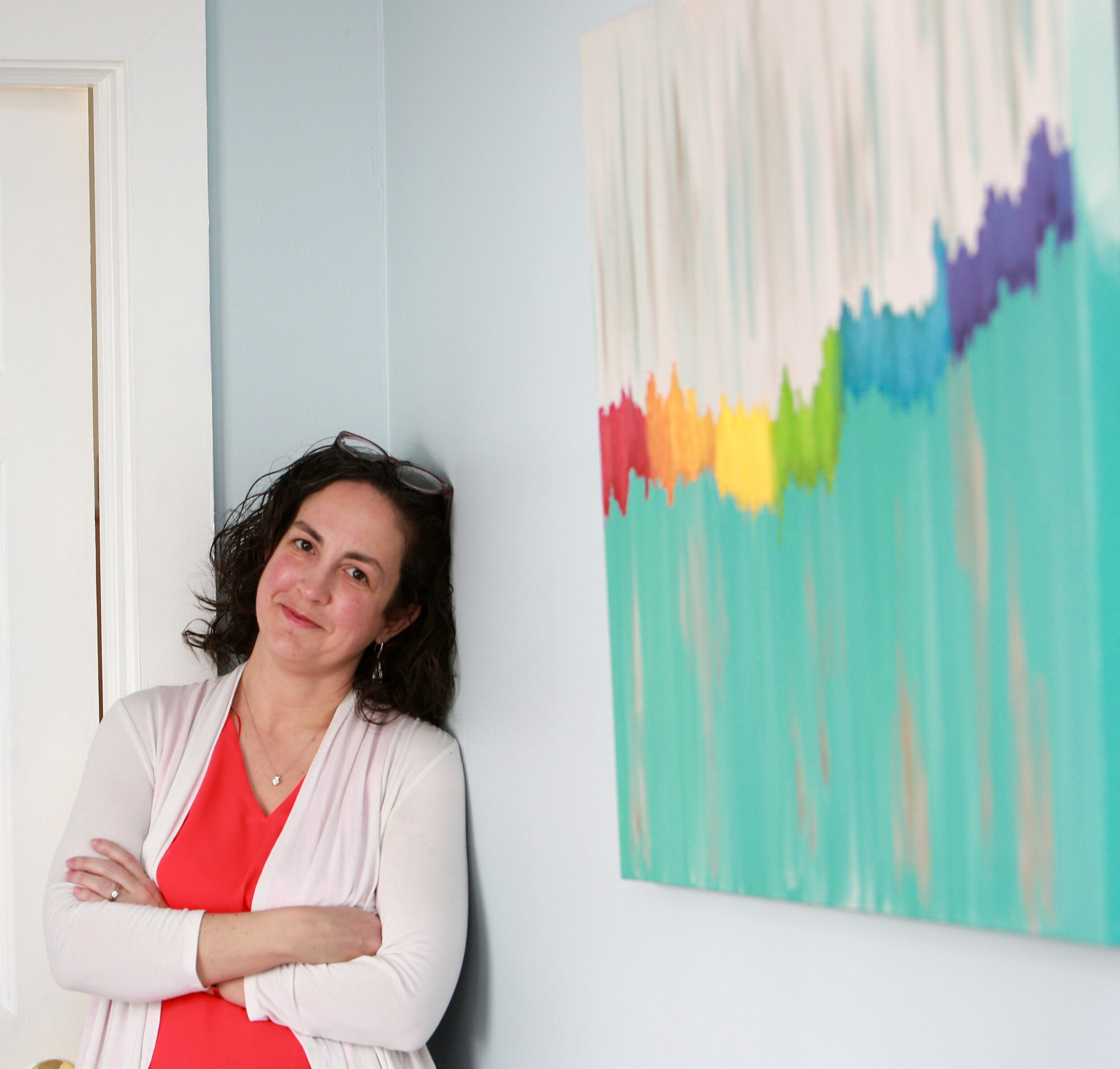Personal stories from life around the commonwealth
Bringing shelter and support to troubled rural families during Covid
By Caleb Guedes-Reed
Virginia Center for Investigative Journalism
Laura Beth Weaver began working at the Women’s Resource Center in Radford, Va. in 2011 and was promoted to director in 2019. The non-profit center has been providing shelter, counseling and programs to adult and child victims of sexual and domestic violence since 1977. It serves the New River Valley, including Giles, Floyd, Montgomery and Pulaski counties and the City of Radford.
On March 10th, Weaver was a new director finishing up a strategic planning retreat with her staff and their executive board. They left excited about all the things they planned to accomplish in 2020. On March 11th, the World Health Organization declared Covid-19 a pandemic.
Immediately, Weaver decided she couldn’t allow her community to feel like they had to choose between staying at home in an abusive relationship or reaching out for services and shelter during the health crisis.
The need has surged: caseloads during the Covid pandemic have reached their highest level in five years.
Weaver spoke in February 2021 about the past year and the impact Covid had on her community.
This interview has been lightly edited for length and clarity.
When I think about my day-to-day over the past year, it’s been working to stay as close to one-step-ahead as possible. Whether it’s buying all the PPE we can find, or securing testing and vaccines, it’s my effort to make sure that when people come here, safety from Covid, domestic violence, and sexual assault is possible.
We know, and have known for decades, that isolation is an abuser’s best friend. The increased isolation seems to embolden some of the abusers because there is less likelihood of getting caught. So, our hotline numbers went up, our request for shelter increased during this time. Hotline contacts have increased by 25% over 2019 levels, and the number of individuals sheltered on average is about 12% higher than in 2019.
The opposite of isolation is what solves the problems we are dealing with. What we’ve done for our clients for so long has been centered around togetherness. Figuring out ways to maintain that continuity has been difficult and I’m fortunate to have a team of coworkers that rise to the occasion every day.
Our 26-bed shelter is designed with lots of group-living spaces. Part of what we know about sexual assault and domestic violence victims when they come to shelter is that building a safe community is really important. Our entire shelter is built around togetherness and healing from trauma.
What we had to do pretty early on was to look for ways to continue providing vital, safe shelter but in ways that didn’t require people to share a bathroom, kitchen, or living space. We also collaborated with a national movement of sexual and domestic violence agencies to pool our resources and were able to leverage orders of hand sanitizers, masks, etc.
What changed is not what we do, but how we do it. So, we did some things like reduce capacity at our emergency shelters and we used non-congregate settings for folks who are fleeing domestic assault and sexual violence. We transitioned to telehealth for some of our counseling activities.
For over 40 years, we’ve had this great 24-hour crisis hotline where people can call. Knowing that people were home isolating, potentially in unsafe situations, we increased our hours on the chat line so that people could chat with an advocate quietly on their tablet or their phone and everyone in the house doesn’t have to hear their conversation.
For example, one wife reached out to our hotline for help as she planned to flee her abusive husband. She knew it was safest for her and their three children to leave while he was at work. But when the Covid pandemic resulted in her husband’s job loss, she lost her window of escape.
As the stress increased, the violence and control escalated. The woman felt completely cut off from support systems designed to keep her safe. Unable to make a phone call with her husband constantly present in the house, she was able to reach out to us on our chatline, connect with an advocate and make a safety plan.
Our staff was being asked to do more for people who have experienced more severe abuse. The normal support structures have gone virtual. Our children weren’t going to school every day and school is an important protective factor because caring adults at school might notice when abuse is happening and intervene. We’re not going to restaurants, or parks, or on playdates with other families. These are activities that keep people connected to outside support systems but were shut down due to Covid.
We know that any time there is a large-scale crisis, whether it’s financial (2008) or something like a pandemic, it’s going to affect the most vulnerable among us differently. In the lens of domestic violence, it makes an impossible situation even more difficult.
This layer of the pandemic is going to first affect the folks with fewer structural and social safety nets. There’s lots of research coming out around women disproportionately leaving the workforce during Covid. Anytime there is a gender gap, it’s going to also affect domestic violence victims disproportionately.
For me, the fact we provided services to over 4,000 people last year is the tragedy. Our numbers were high before Covid hit. It’s kind of a double-edged sword. I’m very glad that we are here and that people are reaching out to us but that our numbers hit a 5-year high is indicative of trauma after trauma being serious in our community. These folks still show up to school and to work. These are the people moving through their lives every day and have experienced sexual assault or domestic violence.
One of my favorite programs is our donations program where community members can donate furniture and household goods. We have a truck that will pick these things up and take them to a storage facility where we keep them. And when someone moves into their own palace, we can help set them up with beds, couches, a microwave, and a coffee pot - because everybody needs a coffee pot. We kept doing all of that during the pandemic, granted there was a time when we didn’t pick up many donations but fortunately, before the pandemic, our community had been so generous that our storage space was full.
We are essential. We never closed. Because we offer shelter living and work with domestic violence and sexual assault victims, our staff responds to the emergencies at the hospital. When someone is a victim of domestic violence or sexual assault, they call our advocates to go meet with them. Our staff also works in the courthouse advocating for sexual assault and domestic violence victims.
It is essential to me that our community understands that we are still here. Our programs are still available and they’re still free and confidential. Our staff is diligent in making sure that the same services we have always offered remain available during Covid.
I am incredibly proud of the work our staff has done for the community. When things were shut down - we kept saying we are not closed. We are still here. Our community needs to know that we still need them. There are huge funding decreases in the future for domestic violence and sexual assault programs. We still need community support.


